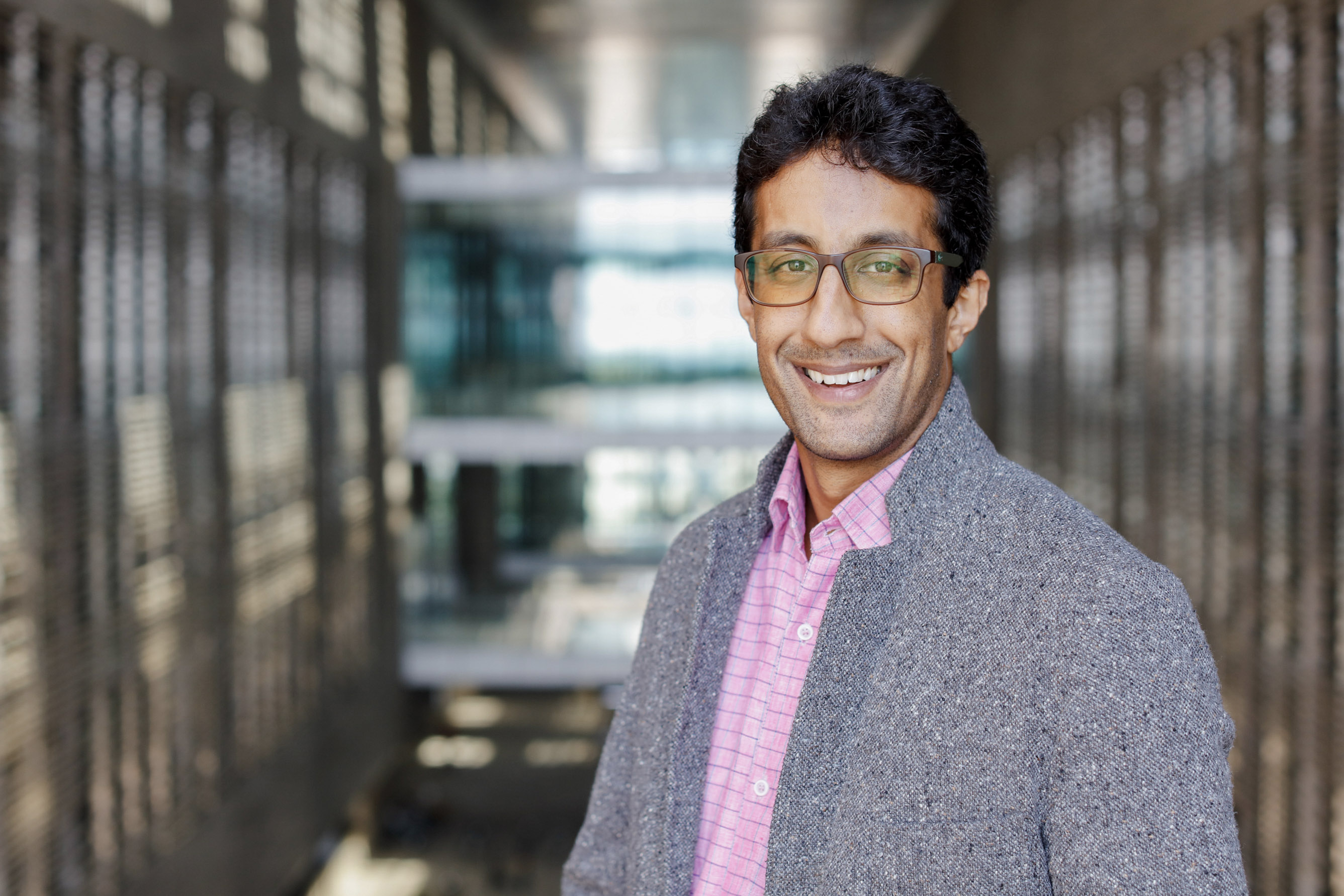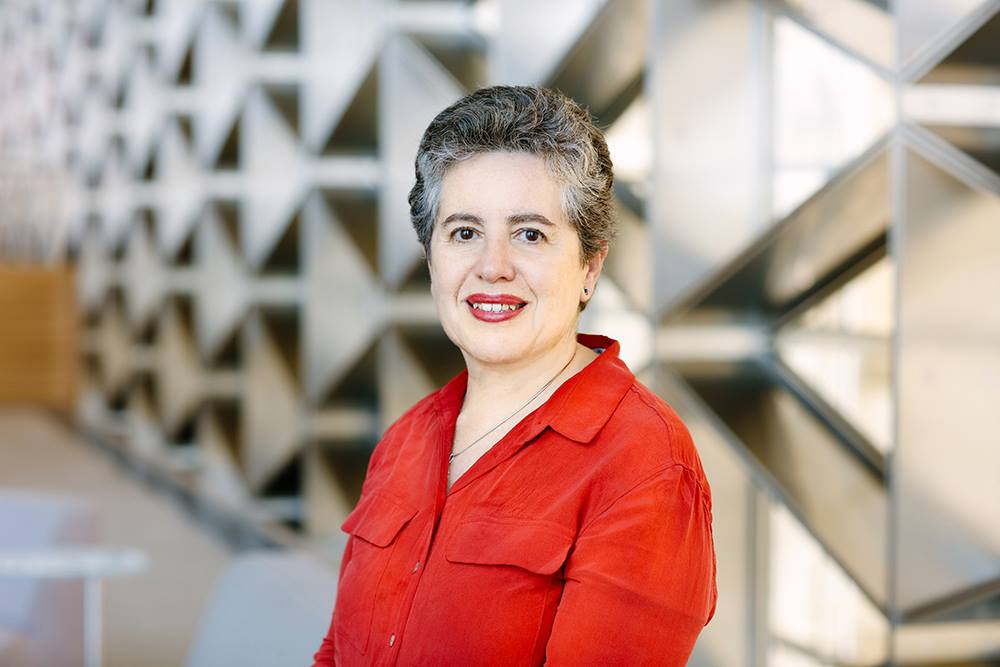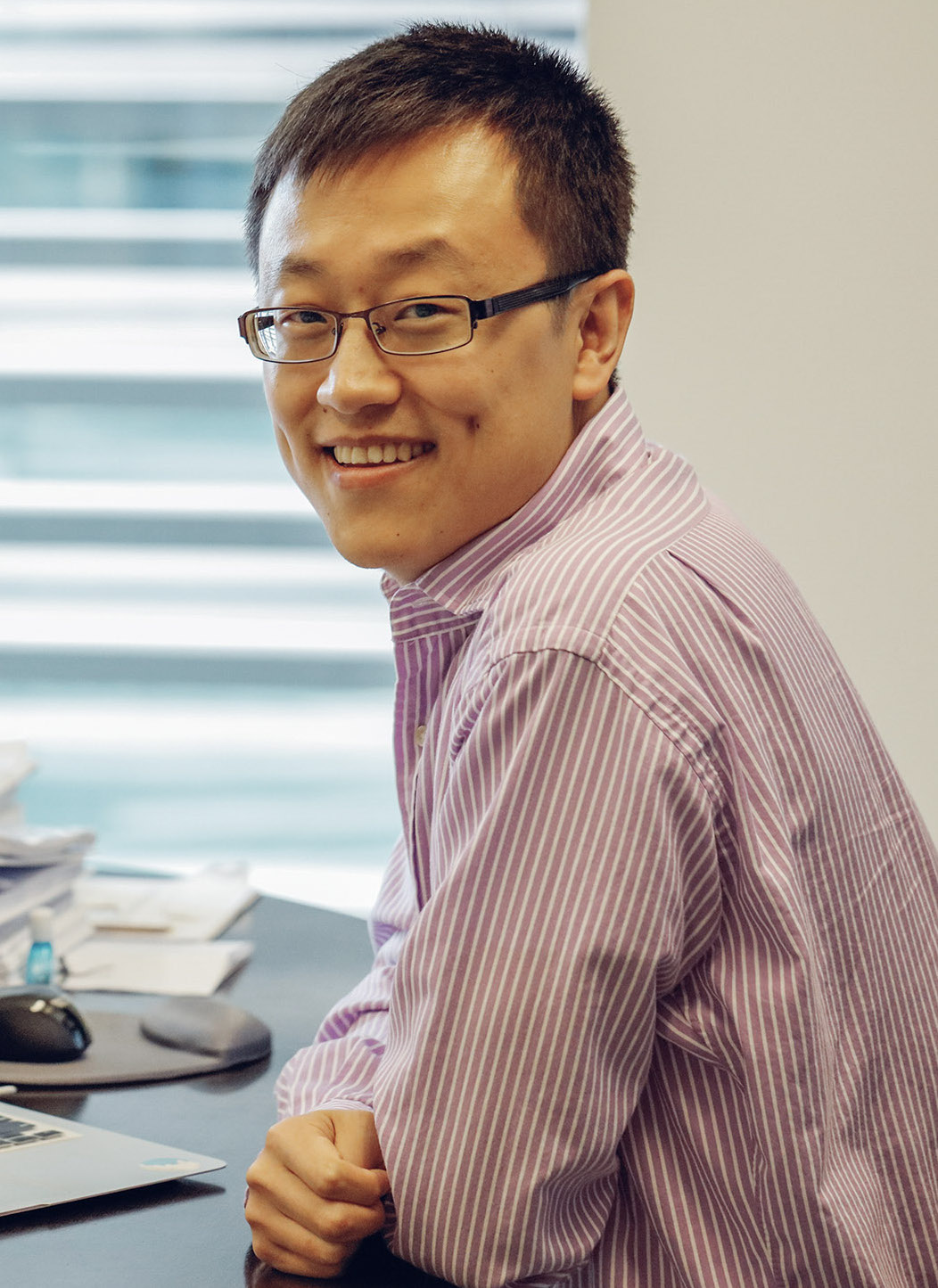Where: Bldg 20 Auditorium
Credit: 2
Description
Join us in the Auditorium for the final speeches including from the WEP Chair and Vice Provost, and a Closing keynote by

Ahmed Eltawil
Ahmed M. Eltawil is a Professor of Electrical and Computer Engineering (ECE) and the Principal Investigator of the Communication and Computing Systems Lab (CCSL) at KAUST. His research focus lies in the area of efficient architectures for mobile computing and communications systems. His research philosophy is to employ a multidisciplinary approach to the design and development of mobile systems spanning algorithm, architecture and implementation.

Atif Shamim
Dr Atif Shamim received his M.A.Sc. and Ph.D degrees in electrical engineering at Carleton University, Canada in 2004 and 2009 respectively. He was a NSERC Alexander Graham Bell Graduate scholar at Carleton University from 2007 till 2009 and NSERC postdoctoral Fellow in 2009-2010 at Royal Military College Canada and KAUST. In August 2010, he joined the Electrical Engineering Program at KAUST, where he is currently an Associate Professor and principal investigator of IMPACT Lab.
Professor Shamim's research is focused on applications like personal area network, automotive radars, wearable and implantable wireless sensors, wireless powering and renewable energy.

Aubrie O’Rourke
KAUST Alumna Aubrie O’Rourke (PhD '15) performs both fundamental and application-based science at NASA as a member of Kennedy’s Space Crop Production team. She carries out her own research, and she supports other principal investigators working on experiments being launched to the International Space Station.
O’Rourke also leads a Polaris Project, funded by NASA’s Mars Campaign Office, that supports in-flight research conducted in the lab. The mission: to build and deploy an automated genomic sequencer that will allow NASA to monitor microbes that are important for water and food systems off planet. This innovative device will study a microbe living on the space station and determine how the environment of space affects its genome.
O’Rourke grew up outside of Yosemite National Park in California’s Central Valley, as a lover of art, nature, and of course – science. After earning a bachelor’s degree in general biology from the University of California San Diego (UCSD) and a master’s degree in quantitative and systems biology from the University of California, Merced, she ventured off the mainland to Hawaii for a year to fly small aircraft, a skill she had begun learning in her home state.
She then went to Saudi Arabia to earn a doctorate in marine biology at the King Abdullah University of Science and Technology (KAUST). Her Saudi Arabian experience included founding a horse-riding club titled “Kingdom Equestrians” for her university. There, O’Rourke taught women, children, and men to ride horses, promoting community service and fitness.
O’Rourke returned to California to work as a scientist researching infectious disease-causing bacteria while concurrently teaching microbiology at UCSD and general biology at Mesa Community College. While working at the J. Craig Venter Institute in La Jolla, California, she submitted a postdoctoral fellowship proposal, which was selected by NASA. That launched her Kennedy career in June 2020.

GIANLUCA SETTI
Prof. Setti is an internationally recognized scientist and Fellow of the Institute of Electrical and Electronics Engineers. Since 2019, he has been serving as the first non-US Editor-in-Chief of the Proceedings of the IEEE, the flagship journal of the Institute. Setti has also held the IEEE Vice Presidency for Publication Services and Products for two terms, during which time he ensured ethics in using bibliometric indicators for evaluating the research impact of individual scientists. During these terms, he ensured that financial operations were sound and mission-aligned. He has also served on IEEE's board of directors, where he engaged in addressing the impact of open access mandates on the IEEE community.
His research interests and approaches are multidisciplinary in nature and extremely relevant to KAUST and the Kingdom. They include nonlinear circuits, statistical signal processing, electromagnetic compatibility, compressive sensing, biomedical circuits and systems, power electronics, design and implementation of IoT nodes, as well as machine learning techniques for anomaly detection and predictive maintenance. He has published about 320 scientific articles in journals and conference proceedings, as well as four books. He has received best paper awards in three different IEEE Transactions, as well as six best paper awards or nominations at major conferences like ISCAS and DATE. He is also the recipient of the 2013 IEEE Circuits and Systems Society (CASS) Meritorious Service Award and has been an IEEE CASS Distinguished Lecturers in 2004-2005 and 2015-2016.
Prof. Setti is equally adept at engaging academic and industry collaborators and stakeholders, which will serve him very well in his role as KAUST Dean. He is currently with the Politecnico di Torino (Polytechnic University of Turin, Italy), where he serves as Professor of Electronics for Signal and Data Processing in the Department of Electronics and Telecommunications and the department's Associate Chair for Research. In addition to these roles, he is the Rector's Delegate on Research Quality Evaluation for the university. His PhD is in Electronic Engineering and Computer Science from the University of Bologna.
Prof. Setti has been appointed CEMSE Dean following a search led by Prof. Slim Alouini, Distinguished Professor of Electrical and Computer Engineering and Associate Vice President for CEMSE Research. Members of the search committee also included KAUST Profs.Ying Sun, Diogo Gomes, Ivan Viola, Tareq Al-Naffouri, Bill Roberts, and Suzana Nunes. I would like to thank this group, who worked closely with KAUST leadership to undertake this rigorous global search.

Khaled Salama
WEP 2021 Chair. Khaled Salama is professor of Electrical and Computer Engineering and currently the Associate Dean at KAUST's Computer, Electrical and Mathematical Science and Engineering Division (CEMSE). Professor Salama's research interests cover a variety of interdisciplinary aspects of electronic circuit design and semiconductors' fabrication. He is engaged in developing devices, circuits, systems, and algorithms to enable inexpensive analytical platforms for a variety of industrial, environmental, and biomedical monitoring applications. Recently he has been working on neuromorphic circuits for brain emulation.

Mani Sarathy
Dr. Sarathy is currently Associate Director of the Clean Combustion Research Center at KAUST and Sr. Manager Technology & Innovation at NEOM Hydrogen and Green Fuels. He is also working with the Saudi Ministry of Energy to develop a Circular Carbon Economy National Program.
Dr. Sarathy employs engineering modeling tools to determine the net environmental, economic, and social impact of fuel engineering technologies and processes. Specific tools include engineering process modeling, life-cycle assessment, cost/benefits analysis, energy auditing, materials accounting, and environmental assessment to examine current engineering issues. A primary focus is using models to study greenhouse gas emissions from renewable energy systems, unconventional fuels, gas-to-liquid fuels, and biofuels.

Matteo Parsani
Matteo Parsani is an Associate Professor of Applied Mathematics and computational Science and Mechanical Engineering at King Abdullah University of Science and Technology (KAUST).
He received his B.Sc. and M.Sc. in aeronautics and astronautics from Politecnico di Milano (Italy) and his Ph.D. in mechanical engineering from the Vrije Universiteit Brussel (Belgium). He trained as a postdoc at KAUST and, for four years, in the Computational AeroScience branch at NASA Langley Research Center (USA).
Matteo’s research interests are related to developing novel, robust, and scalable numerical methods on unstructured grids partial differential equations and their application to solving realistic problems in various natural science and engineering areas. The application domains currently driving Matteo’s research are compressible computational aerodynamics (e.g., highly separated turbulent flows, launch systems), computational aeroacoustics for noise reduction of vehicles, dense gas flow simulations for energy conversion (e.g., supercritical fluids), and molecular communication.
The high-performance computational solvers and libraries he develops are used to solve real problems with industry partners such as Boeing, NASA Langley Research Center (LaRC), McLaren F1 Racing Team, Airbus, and recently, E1 Series, Lucid Motors, and Philips Ultrasound.

Mohamed Slim Alouini
Mohamed-Slim Alouini received the Ph.D. degree in Electrical Engineering from the California Institute of Technology (Caltech), Pasadena, CA, USA, in 1998. He served as a faculty member in the University of Minnesota, Minneapolis, MN, USA, then in the Texas A & M University at Qatar, Education City, Doha, Qatar before joining King Abdullah University of Science and Technology (KAUST), Thuwal, Makkah Province, Saudi Arabia as a Professor of Electrical Engineering in 2009. His general research interests include the modeling, design, and performance analysis of wireless communication systems. He is currently actively working on addressing the uneven global distribution, access to, and use of information and communication technologies by studying and developing new generations of integrated terretrial, aerial, and space networks as a solution to provide global connectivity.

Nazek El-Atab
Nazek El-Atab is an Assistant Professor of Electrical and Computer Engineering and the Principal investigator of the Smart, Advanced Memory devices and Applications lab (SAMA) at King Abdullah University of Science and Technology, Saudi Arabia. Her research interest focuses on the design and fabrication of smart memory and electronic devices and their applications.

Robert Hoehndorf
Robert is an Associate Professor in Computer Science at King Abdullah University of Science and Technology in Thuwal where he is the PI of the Bio-Ontology Research Group (BORG). Prior to joining KAUST, Robert held research positions at the Max Planck Institute for Evolutionary Anthropology, the European Bioinformatics Institute, University of Cambridge, and Aberystwyth University. He earned his PhD degree in Computer Science from the University of Leipzig. Robert's research focuses on the development and application of knowledge-based algorithms in biology and biomedicine.
Samia Falimban
I joined KAUST in 2009, as Director of Marketing Communications, moving to Director of Special Initiatives before taking up my current role. I work with a talented team to develop programs and initiatives that enrich and inspire. My hometown is Jeddah. I gained my MBA at Maastricht University and outside of work you can find me hiking, enjoying beach life or cooking.

Suzana Nunes
TBC

Tony Chan
TBC

Xin Gao
Xin Gao is a Professor of Computer Science, Acting Associate Director of the Computational Bioscience Research Center (CBRC), and Lead of the Structural and Functional Bioinformatics Group at KAUST.
No resources found.
No links found.


